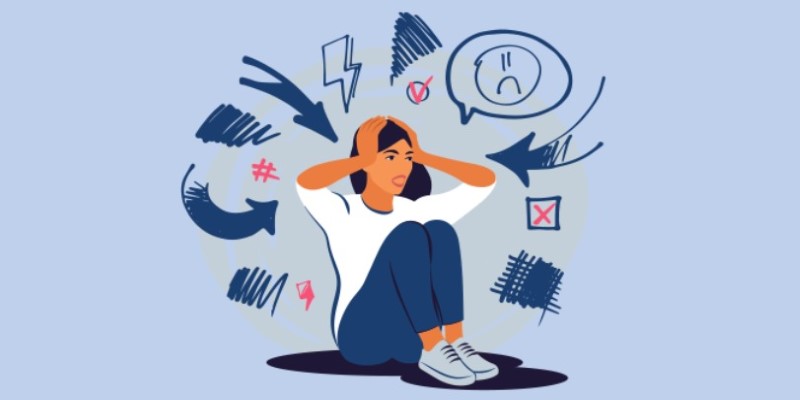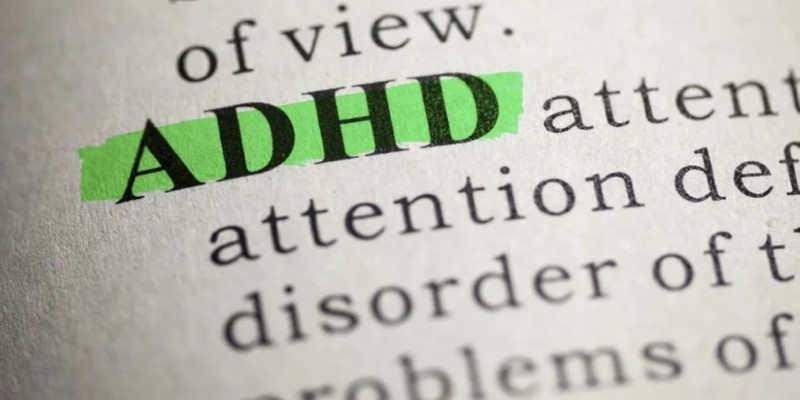Adult-Onset ADHD: Is It Possible to Develop ADHD as an Adult
Attention deficit hyperactivity disorder (ADHD) has long been recognized as a condition that primarily affects children. However, more adults today are being diagnosed with ADHD for the first time, leading many to ask: Can ADHD actually appear for the first time in adulthood?
The short answer is, its complicated. While ADHD is considered a neurodevelopmental disorder that begins in childhood, symptoms might not be recognized until adulthood. There is still debate among researchers about whether ADHD can emerge fully in adulthood without childhood symptoms or if these were simply overlooked.
The Childhood Connection: Why Diagnosis is Usually Retrospective
ADHD is typically diagnosed in childhood, with symptoms like inattention, hyperactivity, and impulsivity commonly appearing before the age of 12. The Diagnostic and Statistical Manual of Mental Disorders (DSM-5) guidelines stipulate that for a formal diagnosis, symptoms must have been present before adolescence. But the issue of adult-onset ADHD is more nuanced.
For some adults, its possible that they lived with ADHD symptoms as children but were never diagnosed. These individuals may only notice the impact of their symptoms later in life, especially when they face more complex responsibilities like work or managing a household.
Research suggests that many adults only seek a diagnosis after recognizing patterns of behavior, such as difficulty staying focused at work, chronic disorganization, or impulsivity that wasnt apparent or problematic earlier in life. These symptoms may have been masked or compensated for, either by family structures, less demanding school environments, or other factors during childhood and adolescence.
Adult-Onset ADHD: Is It Real?
Recent studies raise the question of whether ADHD can genuinely emerge for the first time in adulthood. This concept, known as "adult-onset ADHD," remains controversial. Some researchers argue that ADHD is inherently a childhood disorder, and those diagnosed in adulthood likely had symptoms that went unnoticed or were incorrectly attributed to other issues, such as anxiety or depression.

A study published in Child Psychiatry and Human Development emphasized that what might look like adult-onset ADHD could, in fact, be other conditions with overlapping symptoms. These include trauma-related disorders or even the natural cognitive declines associated with aging, which can mimic ADHD-like symptoms. Therefore, misdiagnosis is a possibility, especially when a patient's childhood history isnt thoroughly investigated.
Nonetheless, some researchers, including those examining late-onset ADHD, believe that environmental factors, stress, or other life events may trigger or exacerbate latent symptoms, causing them to become more noticeable in adulthood. These life events may include significant transitions, such as entering the workforce, starting a family, or encountering high-stress situations, which could cause someone to seek a diagnosis for the first time.
Diagnosing ADHD in Adulthood
Diagnosing ADHD in adults is particularly challenging. Unlike children, adults do not typically exhibit hyperactivity in the same way, and their symptoms may manifest in more subtle forms. For example, instead of being outwardly hyperactive, an adult might experience restlessness, difficulty focusing, forgetfulness, or emotional dysregulation.
To confirm a diagnosis of ADHD in an adult, healthcare professionals often have to look back at the individual's childhood to see if any signs could indicate undiagnosed ADHD. This can be tricky because memories are fallible, and patients may not accurately recall their behavior as children. Teachers' or parents' reports, if available, may help fill in the gaps. A thorough assessment often includes interviews, self-reports, and questionnaires tailored to adult symptoms.
Another complicating factor is that adult ADHD often coexists with other mental health conditions such as anxiety, or depression, which can blur the diagnostic picture.
The Importance of Seeking Treatment for Adult ADHD
Treatment for ADHD is essential because it helps reduce these challenges and improves overall quality of life.
Addressing Daily Life Challenges
Adults with untreated ADHD often face difficulties in managing everyday tasks. These can include trouble with time management, poor organization, and emotional regulation, all of which can make meeting deadlines or maintaining relationships a constant struggle.
Treatment, such as medication or therapy, helps individuals create coping strategies and develop skills to better manage these symptoms. Medications like stimulants have been shown to improve attention, focus, and impulse control, allowing for better functioning in everyday life.
Managing Co-occurring Conditions
Adults with ADHD often experience co-occurring conditions like anxiety or depression. Treating ADHD can alleviate these issues, as the strain of untreated ADHD can worsen them. Cognitive-behavioral therapy (CBT) helps manage ADHD symptoms while also equipping individuals with strategies to handle stress and emotional difficulties.
Strengthening Relationships

Many adults with ADHD struggle with personal and professional relationships. Symptoms like inattentiveness, forgetfulness, or impulsivity can lead to frustrations in relationships, whether at home or work. Treatment allows individuals to better control these tendencies, leading to improved interactions and communication.
Boosting Work Performance
ADHD can have a significant impact on work, affecting focus, time management, and productivity. Left untreated, these challenges can lead to underachievement, job dissatisfaction, or even job loss. However, with the right treatment, individuals can improve their productivity through tools and techniques for better organization and time management.
Preventing Long-Term Consequences
The long-term effects of untreated ADHD can be severe. Adults may experience chronic job instability, strained relationships, financial difficulties, or legal problems due to impulsivity or disorganization. Seeking treatment early can prevent these negative outcomes and offer a better chance for stability and success in the future.
Consistent treatmentwhether through therapy, medication, or lifestyle adjustmentshelps individuals maintain control over their lives and avoid these long-term pitfalls.
Conclusion: Unanswered Questions but Clear Impact
The question of whether ADHD can truly emerge for the first time in adulthood remains a topic of debate among researchers. While some argue that late-onset ADHD is a valid phenomenon, others suggest that earlier symptoms might have gone unnoticed. Regardless of when symptoms first appear, adults experiencing signs of ADHD must seek an evaluation from a healthcare professional.
With proper diagnosis and treatment, individuals can lead productive and fulfilling lives. Adult ADHD is not a new condition, but its one that more people are becoming aware of as mental health diagnoses evolve and become more accepted.












